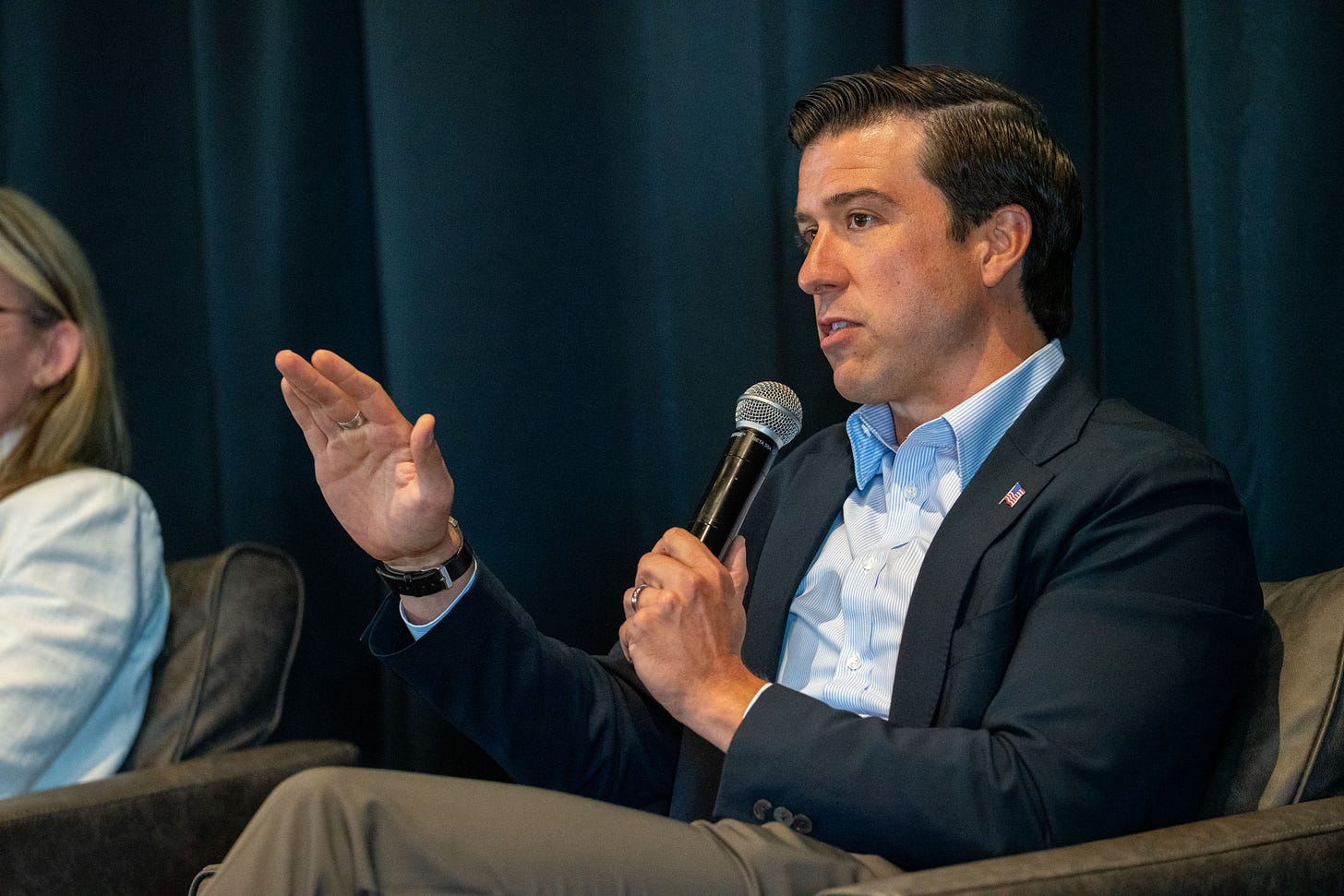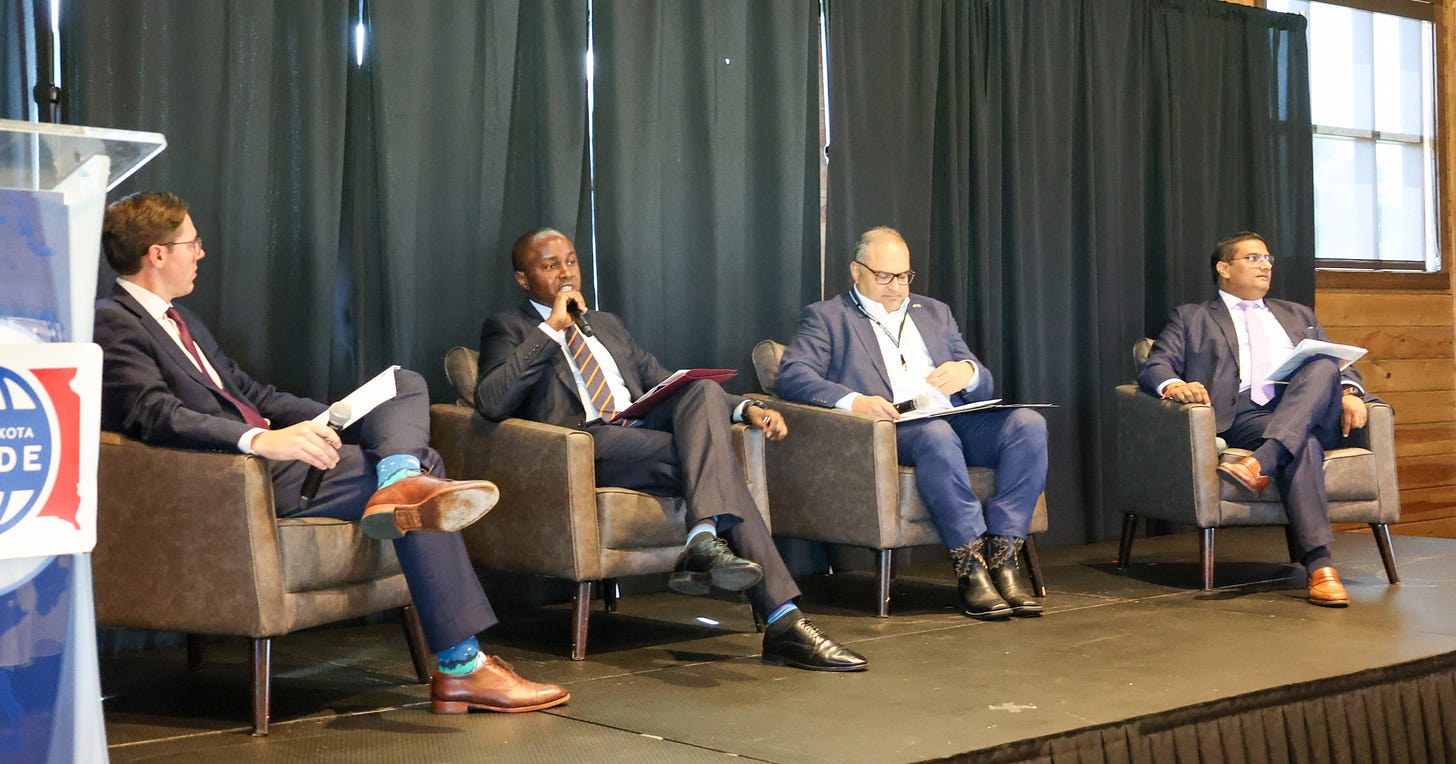Beef, bison & foreign business: South Dakota exports widen global reach
Farm and trade leaders call for broader export base to protect against China risks
Agricultural leaders and policymakers are urging U.S. producers to expand their reach into emerging markets and reduce reliance on China, even as the Asian nation remains a major buyer of American farm goods.
“It’s so hard to cut a deal with China because they don't have a very good track record of holding up their end of the bargain,” Rep. Dusty Johnson told a packed room of producers, business leaders and commodity groups during the 2025 Midwest Agricultural Export Summit in Sioux Falls on Aug. 13. “You spend years building market access, and it only takes months to lose it.”
Speakers at the day-long event stressed that diversification is key to long-term stability in U.S. agricultural exports. U.S. Soybean Export Council CEO Jim Sutter said his organization is actively cultivating relationships with other growing economies to avoid being overly dependent on Chinese demand.
“One of the goals that we have had for our industry is to diversify away from the large Chinese market,” Sutter said, noting that so far in 2025, a record volume of soybeans has gone to non-China destinations. Indonesia, Vietnam and Thailand have become increasingly important buyers, along with India, Colombia and Mexico.
Mexico became the largest importer of U.S. agricultural products in 2023, surpassing China, Sutter said. India’s role is expected to grow as well, especially after overtaking China last year as the world’s most populous nation.
“We are about 1.4 billion people. Sixty-five percent of those 1.4 billion people are young, less than the age of 35, so it's also the world's largest market,” India’s Consul General Prakash Guptka said.
Kenya’s ambassador to the U.S., Christopher Kirigua, told attendees that East Africa’s more than 500 million residents represent largely untapped markets for South Dakota beef, soybeans and grains. He said the same opportunities exist in established foreign markets as well, citing Dubai — where beef is imported from Australia and New Zealand — as an example.
“I’ve never seen American beef in those grocery stores. So that’s a huge opportunity,” he said.

Several panelists emphasized that personal connections are often the deciding factor in securing overseas contracts.
“They want to look the farmer in the face and ask him how he grew the soybeans sustainably,” said Luke Lindberg, USDA undersecretary for trade and foreign agricultural affairs who founded South Dakota Trade in 2023. “That's really where the magic happens, willing buyers and willing sellers in the same room.”
Lindberg encouraged producers to join outbound trade missions and host visiting delegations. “We really need a movement into groundswell, because that’s really where the contracts are going to start to move forward,” he said.
That approach has already shown results in niche markets. UK Consul General Richard Hyde announced that Britain recently began importing U.S.-raised bison — a first for UK consumers — after American producers initiated talks.

“Farmers and their organizations started talking to us, saying ‘this is important for Midwest farmers,’” Hyde said.
While China remains an important partner, Johnson and others warned that maintaining and growing alternative markets will better insulate U.S. agriculture from political and economic disruptions.
“You spend years building market access, and it only takes months to lose it,” he said.




















